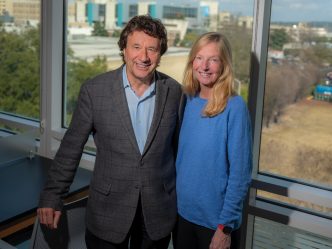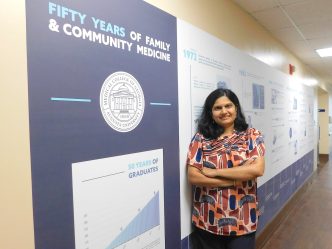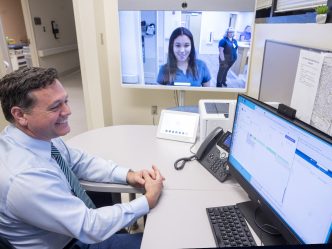The death toll from the coronavirus has risen to nearly 500, and the number of virus cases has climbed to almost 25,000, including 11 in the United States.
As public health officials work to stop the spread of the illness, an Augusta University researcher has developed a mathematical model and algorithm to help health organizations track the spread of potential outbreaks.
Dr. Arni Rao, a professor in the Division of Health Economics and Modeling in the Medical College of Georgia and director of the college’s Laboratory for Theory and Mathematical Modeling, recently tested his population network model in a hepatitis C study and his work helped health officials in India predict the spread of HIV and Avian Influenza. Now, senior scientists at the Centers for Disease Control and Prevention are set to meet with him this month about using his work to stop the spread of the coronavirus.
Most health officials use a regression-based analysis to get a broad view of relationships between risk variables among a population to predict the course of the epidemic. However, Rao’s approach takes what is known about the infected to construct clusters of networks that offer more specific data on who is at risk of infection.
Rao’s research, “Population network structures, graph theory, algorithms to match subgraphs may lead to better clustering of households and communities in epidemiological studies,” was published in the Cambridge University Press journal Epidemiology and Infection. Scientists at the CDC and the University of Bristol shared an appreciation for Rao’s work in an article in the same issue.
Read The Augusta Chronicle’s story on Rao’s research.
For more information on the coronavirus, visit our resource page.
 Augusta University
Augusta University




